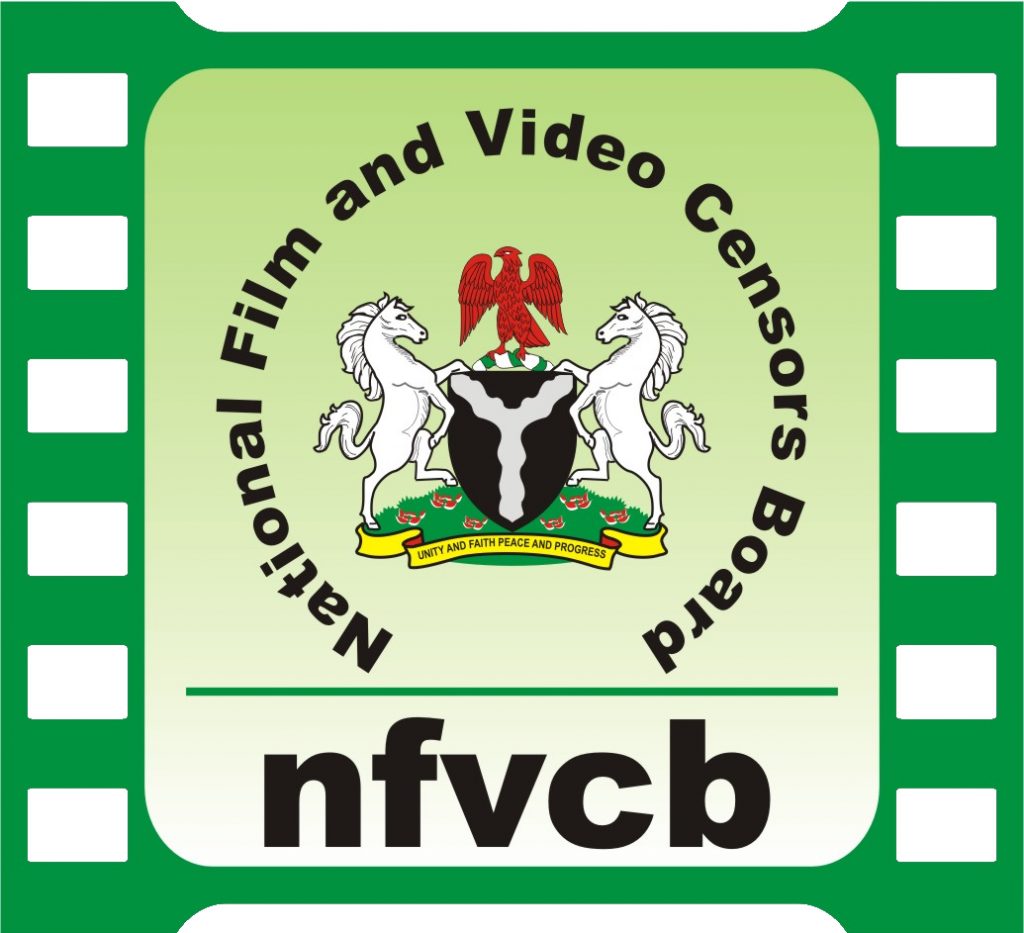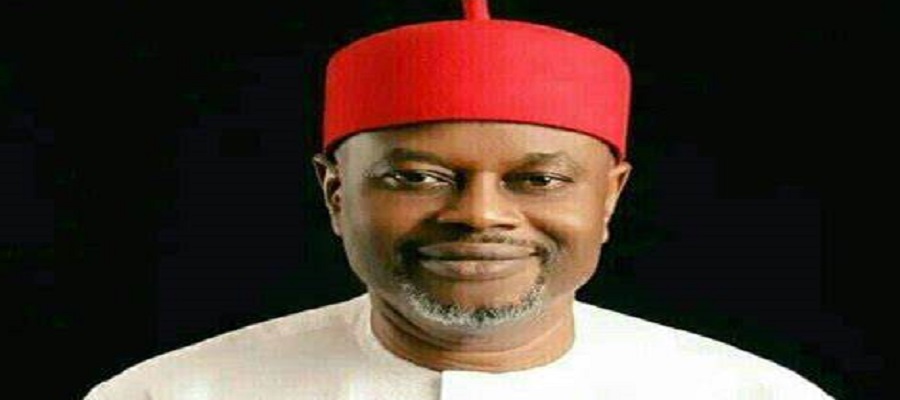Broadcasting
NASS to Amend Act Establishing Film Censors Board

Sen. Suleiman Adokwe, Chairman Senate Committee on Information and National Orientation, says the National Assembly will soon amend the act establishing the National Film and Video Censors Board (NFVCB).
Adokwe stated this on Tuesday while delivering his goodwill message at the opening of the Consumer Forum of the NFVCB holding in Bauchi State.
He said that the amendment will further strengthen and reposition the board.
The forum with the theme: “The Movie Industry: The case for Peace, Economic Development and Social Engineering”, is holding at the Yankari Games Reserve from Jan. 29 to Feb 1.
According to Adokwe, the NFVCB is a critical agency of government that should be strengthend for it to effectively handle modern realities and challenges in the evolving Nigerian motion picture industry.
“The Senate will give all necessary backing and strengthen the act establishing the NFVCB for it to be more effective in delivering on its mandate.
“Even if it requires amending the act for it to be very effective, we shall do it for the film and video sector to strive.
“Our artistes are struggling because of piracy and other unlawful activities affecting their creativity,” he said.
Adokwe noted that the movie industry was not just an economic venture, but a veritable instrument for peace building and national integration.
He, therefore, urged producers and relevant stakeholders to tell the Nigerian story in good light by promoting what bind Nigerians together.
“The movie is a very crucial tool for social engineering, as it can be used to cause war or promote peace.
However, our movie stakeholders are being called on upon to promote peace and stop war, they should not watch our country fall apart,” he urged.
The Executive Director of the NFVCB, Mr Adedayo Thomas, said that the forum was for stakeholders to brainstorm and chart a common front for the industry in the North-East.
“The Consumer Forum is a flagship program of the board, aimed at sensitising the local population, especially the young and unemployed, entrepreneurs, financiers and government of the enormous potentials available in the film industry.
“This is also a platform to educate participants on how to take advantages of these opportunities for empowerment and building a strong economy and better society.
“We are here to chart a framework that will create a basis for the film and video industry as a tool for economic growth and sustainable peace in the North-East.” he said.
He noted that youths and trained artisans from the region would be exposed to, hitherto, dormant areas of the film industry, get employed and leverage on opportunities.
The representative of the Actors Guild of Nigeria (AGN), Association of Movie Producers (AMP), and other industry players, especially from the North were present at the event. Investors, members of the academia, students and other young talents in film and theatre were also present at the forum.
The NFVCB is a Federal Government body that regulates the films and video industry in Nigeria.
The Board is empowered by law to classify all films and videos whether imported or produced locally.
It is also the duty of the Board to register all films and videos outlet across the country and to keep a register of such registered outlets among other functions.
Broadcasting
Subscriber Withdraws Suit against MultiChoice, FCCPC over Price Hike

Festus Sanmi Onifade, subscriber and legal practitioner, has withdrawn his lawsuit challenging alleged unfair price hikes by MultiChoice Nigeria Limited, filed at the Federal High Court in Abuja.

Also listed as a defendant in the suit is the Federal Competition and Consumer Protection Commission (FCCPC).
In a notice of discontinuance, dated April 1, 2025, the claimant formally informed the court of his decision to wholly withdraw the suit, marked FHC/ABJ/CS/363/2025.
However, the notice, signed by Onifade, did not advance reasons for the withdrawal.
Onifade had earlier approached the court to challenge what he described as an unfair and unjust price increase announced by MultiChoice Nigeria, slated to take effect from March 15, 2025.
In the originating summons, he asked the court to determine, among other things, whether, given Section 128 of the Federal Competition and Consumer Protection Act, 2018, and other relevant laws, the notice of the impending price increase issued by the first defendant was not unfair, unjust, grossly inadequate and a breach of his consumer rights; whether, considering the subsisting appeal in MultiChoice Nigeria Ltd & Ors v. Festus Onifade & Ors, the defendant was not stopped from further increasing the price of its services.
The suit centred on legal tussle between Onifade and MultiChoice over price hikes, which the claimant insisted were being implemented in defiance of regulatory standards and without adequate consumer engagement.
Broadcasting
Starlink, DStv, Others Pay “Peanuts” to Operate in Nigeria- Minister

Uche Nnaji, minister of Innovation, Science and Technology, has, said that the federal government has been exploring measures to curb the growing exploitation of satellite technologies, lamenting that Starlink, DStv, and a few other service providers pay ‘peanuts’ to operate in Nigeria.

According to him, some foreign investors have been known to find a way to bypass the system and deprive the government of its mandatory revenues.
The minister made the revelation at a stakeholders’ Workshop on Space Regulation organised by the National Space Research and Development Agency (NASRDA) in Abuja.
Addressing the gathering, Nnaji noted that if the regulation of space is properly handled, it would not only boost revenue, it will also whittle down the growing activities of pipeline vandals, insurgents and criminal groups.
He said, “In the near future, we will move from the $ 1 trillion economy to $ 5 trillion. So with this space regulation and licensing. Starlink and most of them, including DSTV will come here, some will pay peanuts and shortchange Nigerians. These are part of what we want to address through this space regulation and license.
“You can be sure that yearly, if we are going by what my capacity DG of NASRDA has said, we will be looking at over N200 billion annually, with annual increment of 18-20 per cent. This is just one of the initiatives coming out of the agency.”
Continuing, Nnaji said the era of satellite pay-tv or radio losing signal when it is raining will soon be a thing of the past.
The minister said they have discovered some service providers are not operating on the right bandwidths hence the loss of signal when there is a change in weather.
“All these challenges of your TV or radio not working or losing signal whenever it is raining are because the DSTV and the likes are not hosting their equipment at the right bandwidth. They will host it at the lower bandwidth, where they will not spend money on the higher bandwidth.
“But with the regulation, we will force them to move it up to where it’s supposed to be. Because if you move it up to where it’s supposed to be, you won’t have any of those problems of losing signal as soon as it starts raining. So this is part of the many reforms that are going on under this very capable man, Dr. Olumide Adepoju.
Broadcasting
Nigeria Eyes $20Bn Annual Revenue from Space Economy – Minister

Federal government has announced its target of generating over $20bn annually from Nigeria’s rapidly evolving space economy, leveraging a newly launched space security platform and comprehensive regulatory reforms.

Speaking at the launch event in Abuja on Tuesday, Chief Uche Geoffrey Nnaji, minister of Innovation, Science and Technology, unveiled the government’s strategic plans to capitalize on space technologies for national revenue generation, particularly in key sectors like oil monitoring and maritime surveillance.
“With space-based surveillance, we can detect vessels entering Nigerian waters—even those that switch off their transponders to evade detection. We’ll be able to track them, ensure compliance, and collect the appropriate fees. This initiative alone could yield over $20 billion annually,” he said.
The Minister emphasised that Nigeria’s space economy is no longer a futuristic dream but a present-day economic lever.
“Space is no longer the domain of dreamers alone—it is now the frontier of serious business, innovation, and national security,” he declared.
“Our task is clear: to establish a transparent, well-regulated ecosystem where public and private actors—from startups to established institutions—can thrive,” he added.
The new space security platform is tied to the enforcement of Nigeria’s 2015 Regulations on the Licensing and Supervision of Space Activities.
Section 4(1), mandates that no one “shall carry out activities to which the Regulations apply except under the authority of a license granted by the National Space Council.”
These regulations aim to hold local and foreign operators—such as Starlink and DSTV—accountable under Nigerian law.
“Currently, some pay appropriate fees, while others contribute minimally, shortchanging Nigerians. This new regulatory framework will address that imbalance,” Nnaji stated.
Dr. Matthew Adepoju, director general, National Space Research and Development Agency (NASRDA), echoed the Minister’s sentiments, highlighting the economic, security, and youth empowerment potential of the sector.
“Nigeria must remain a forward-thinking nation. We must ensure that space activities within our jurisdiction are properly regulated, commercially optimized, and aligned with international best practices,” Adepoju said.
According to NASRDA, Nigeria can generate about N200bn annually from space-related activities, with potential growth rates of 18–20 per cent per year.
The workshop, which gathered key stakeholders from government, academia, and the private sector, marks a pivotal shift in Nigeria’s approach to space as a tool for development.
It also underscores the urgency to reform existing legal frameworks.
Dr. Olisa Agbakoba, legal expert, who also spoke at the event, criticized Nigeria’s outdated space laws.
“Our current laws are outdated. The NASRDA Act is not a true space law. We need a clear economic strategy for space, legal reform, and an updated National Space Policy,” he said.
Agbakoba proposed creating a Center for Space Law and emphasized that space should contribute at least 2% to Nigeria’s GDP.
“Let’s learn from countries like the UAE. Why not aim for Nigerian astronauts—male and female?” he asked.
Mrs. Esuabana Asanye, permanent secretary of the Ministry, while unveiling the new NASRDA logo, positioned the current phase as a new era in Nigeria’s space journey: “We are now turning the page from the first 25 years, and ushering in a new era—one that will redefine Nigeria’s presence in space.”

 General News2 days ago
General News2 days agoAFD Commits €3m to Africa’s Financial Inclusion

 E-Financial2 days ago
E-Financial2 days agoVerve Expands Payment Frontiers with Global Partnerships, Contactless Innovation

 General News2 days ago
General News2 days agoEU Aims to Remove Barriers to AI Development

 News2 days ago
News2 days agoFG Inaugurates Board of Galaxy Backbone

 E-Business2 days ago
E-Business2 days agoAfrica Plans to Establish a $60Bn AI Fund

 E-Business1 day ago
E-Business1 day agoCyberattacks: ‘56 Percent of Cases Stem from Existing Logins

 News2 days ago
News2 days agoST Team Partners with Deji of Akure to Boost Agriculture and Food Security in Ondo State

 Telecom2 days ago
Telecom2 days agoBolt’s Playtivism Campaign Brings Chess Park to Lagos


























